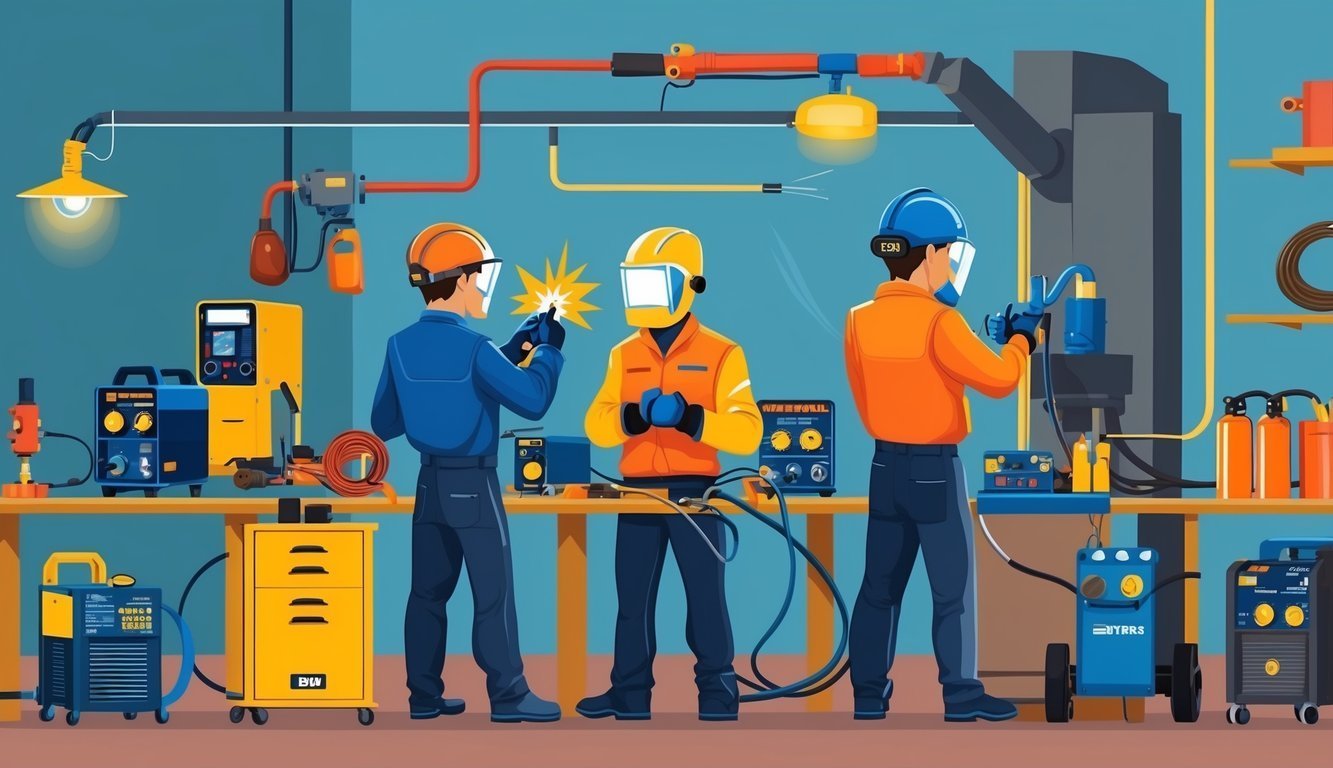Welding is more than just a technical skill—it’s a ticket to a world of job opportunities.
Looking to kickstart your career? Getting certified might just be the edge you need.
So, which programs should you check out? Let’s dive into some standout options that promise thorough training and hands-on experience.
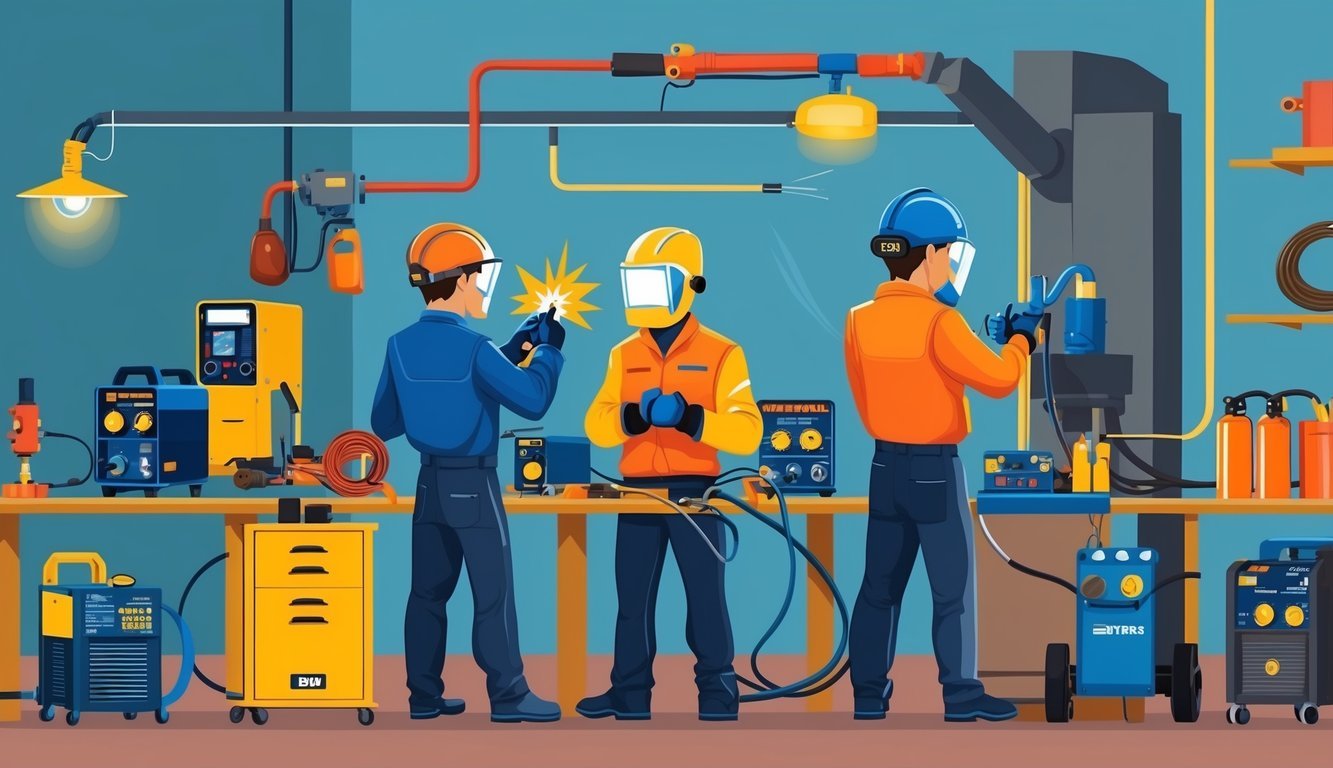
Top welding certification programs offer hands-on practice and teach various welding techniques. They prepare you for exams and lay the groundwork for real jobs out there.
Let’s take a look at four of the best programs that can help you become a proficient welder.
1) American Welding Society (AWS) Certification
The American Welding Society is a heavyweight in the welding certification world.
If you’re serious about advancing your welding career, AWS has tons to offer.
The Certified Welder (CW) program is one of their shining stars.
This program tests your skills with procedures that various industries use, like structural steel or petroleum pipelines.
You’ll need to show what you’ve got at an AWS testing facility.
Thinking about stepping into inspection? Consider the Certified Welding Inspector (CWI) certification.
It’s a big deal in North America and can open up a ton of doors.
AWS keeps things fresh by continuously updating their programs.
They tune in to industry needs, ensuring you learn the latest trends and techniques.
Remember, an AWS certification’s not just about passing a test.
It’s proof that you can tackle real-world welding challenges.
If you’re serious about welding, this cert is a solid contender.
2) International Institute of Welding (IIW) Diploma
Ever thought about taking your welding skills global? The International Welding Engineer (IWE) Diploma could be your next step.
This program’s pretty prestigious and recognized around the globe.
The IWE course dives deep into various welding processes, materials, and design techniques, split into four modules with a hands-on session to boot.
If you’re not quite at the engineer level yet, no worries! The IIW also offers the International Welding Technologist (IWT) program.
It’s a fantastic stepping stone to build your foundation.
Both courses are robust, covering everything from basic welding theory to advanced applications—you’ll come away with a comprehensive understanding.
Plus, these diplomas carry weight on a global scale, which is a big perk for career prospects.
3) Hobart Institute of Welding Technology Certification
If you’re after a top-notch welding certification, look no further than the Hobart Institute of Welding Technology.
They’re renowned for their robust training programs and experienced instructors.
Their Pathways Welding Program is top-rated.
It’s divided into two phases: the first, a 24-week crash course that covers the essentials of welding.
Throughout this program, you’ll learn various welding techniques and get plenty of practice.
By the time you finish, you can take up to four welder qualification tests.
Hobart is also an AWS Accredited Testing Facility, so you can snag your Certified Welder (CW) cert on-site.
Quite a big deal in the welding world!
With state-of-the-art facilities, you’ll be working with the latest tech, which makes all the difference when you hit the job market.
They’ve been certifying welders since 1990, so you’re in good hands.
4) Lincoln Electric Welding School Certification
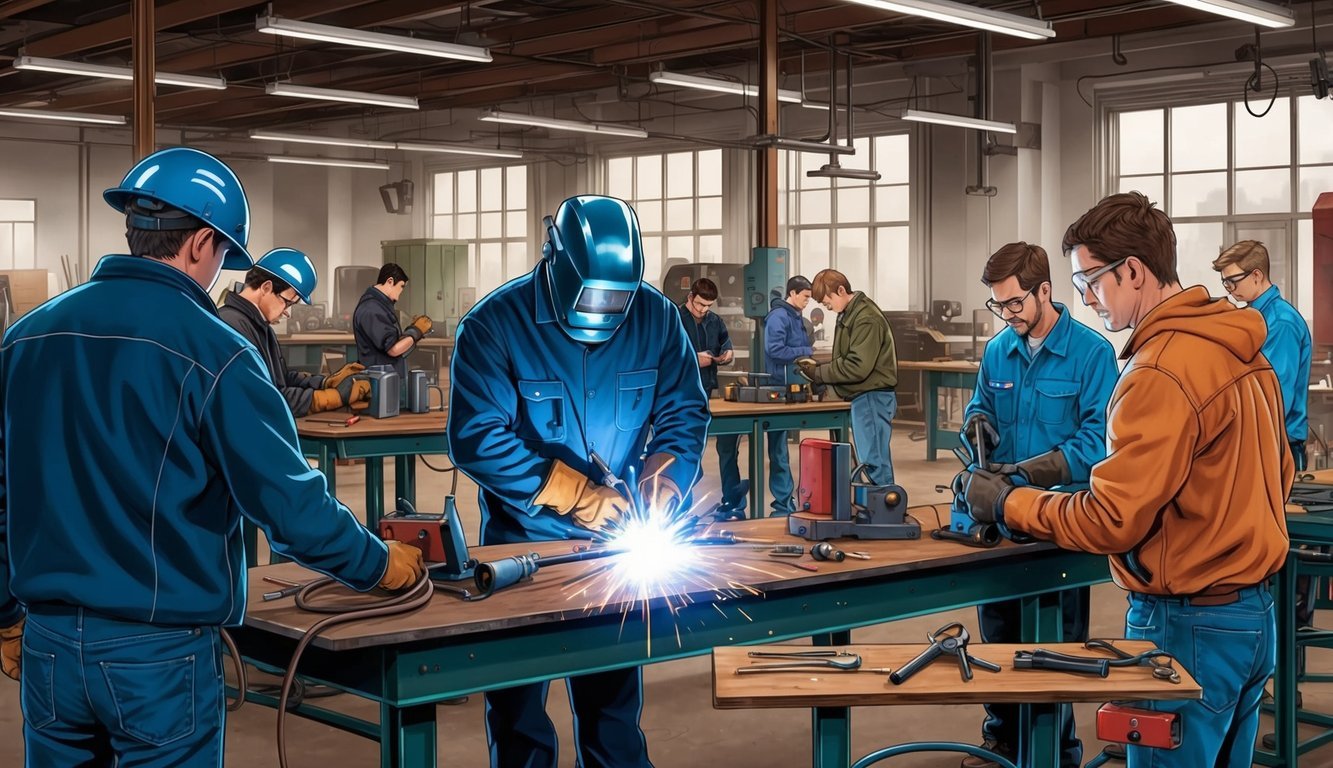
Lincoln Electric offers an exceptional welding certification program with hands-on training across multiple techniques.
The Comprehensive Program is perfect if you want to learn various welding methods.
It dives into different processes and materials, prepping you for a variety of welding gigs.
Looking to sharpen your skills? Lincoln offers specific courses, like the Comprehensive Gas Tungsten Arc Welding course focused on TIG welding.
They also have a Comprehensive Basic Plate & Sheet Metal Arc Welding course for stick welding enthusiasts.
Safety is a priority in Lincoln’s program, too.
You’ll learn all about workplace safety and proper equipment use in the Comprehensive Print Reading & Safety in Welding and Cutting course.
After completing your training, you can take certification tests to validate your skills—this really sets you apart when applying for jobs in the welding industry.
Understanding Welding Certification
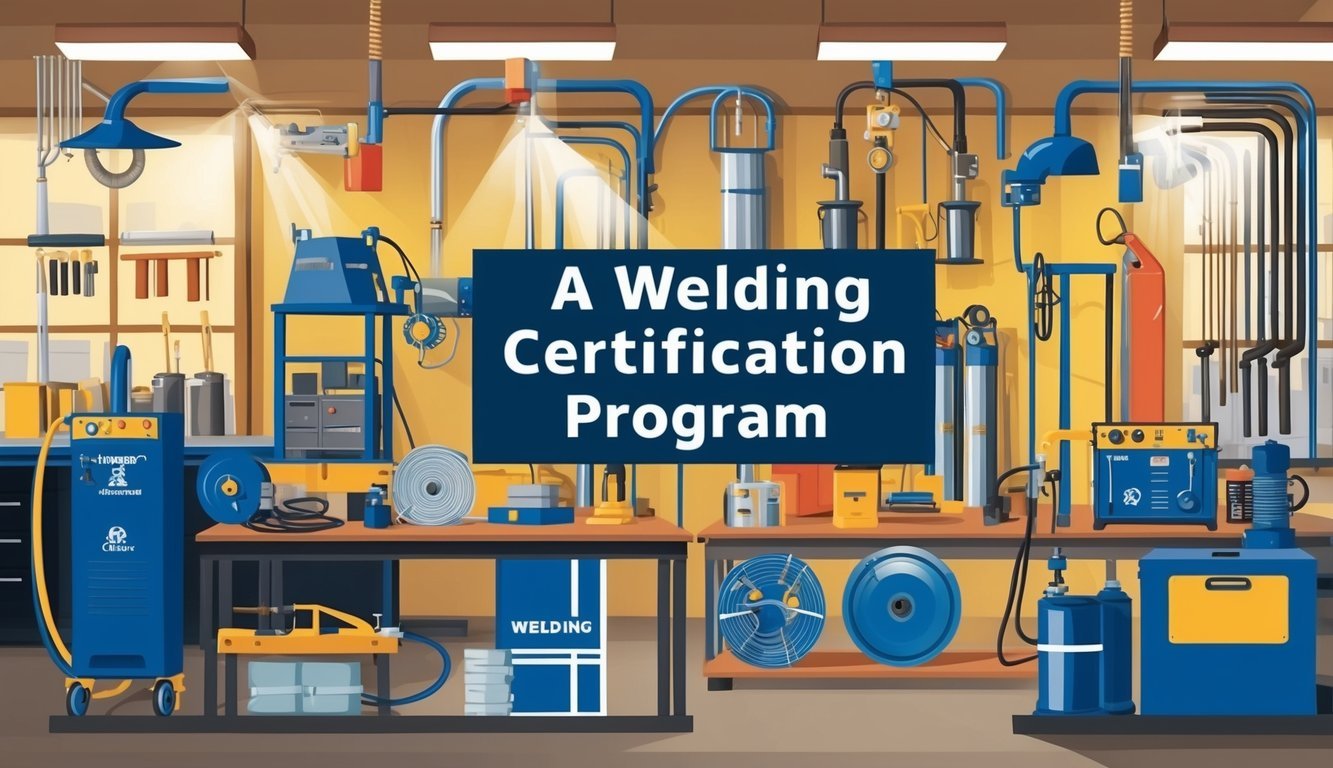
Getting a welding certification isn’t just for show.
It proves you have the skills needed to get the job done right and safely.
Why Certification Matters
Becoming certified in welding can seriously boost your career.
It’s more than just a piece of paper; it’s evidence that you know what you’re doing.
Certified welders often earn more than their non-certified peers.
You’ll stand out in the job market, as employers trust certified professionals with critical projects.
Certification keeps you updated on the latest techniques and safety protocols.
You’ll learn new safety rules and best practices, helping you stay safe on the job and produce high-quality work.
Types of Welding Certifications
There are plenty of welding certifications available, each designed to focus on different skills or techniques.
The American Welding Society (AWS) is one of the big players, offering popular certifications like the Certified Welder for foundational skills and more advanced options like Certified Welding Inspector or Certified Welding Educator.
Other organizations also offer specialized certifications—like those for underwater welding or aerospace welding.
Some even focus on specific materials such as aluminum or stainless steel.
Choose a certification that aligns with your career goals.
Think about the kind of work that excites you, and find a program that’ll teach you the relevant skills.
Benefits of Comprehensive Programs
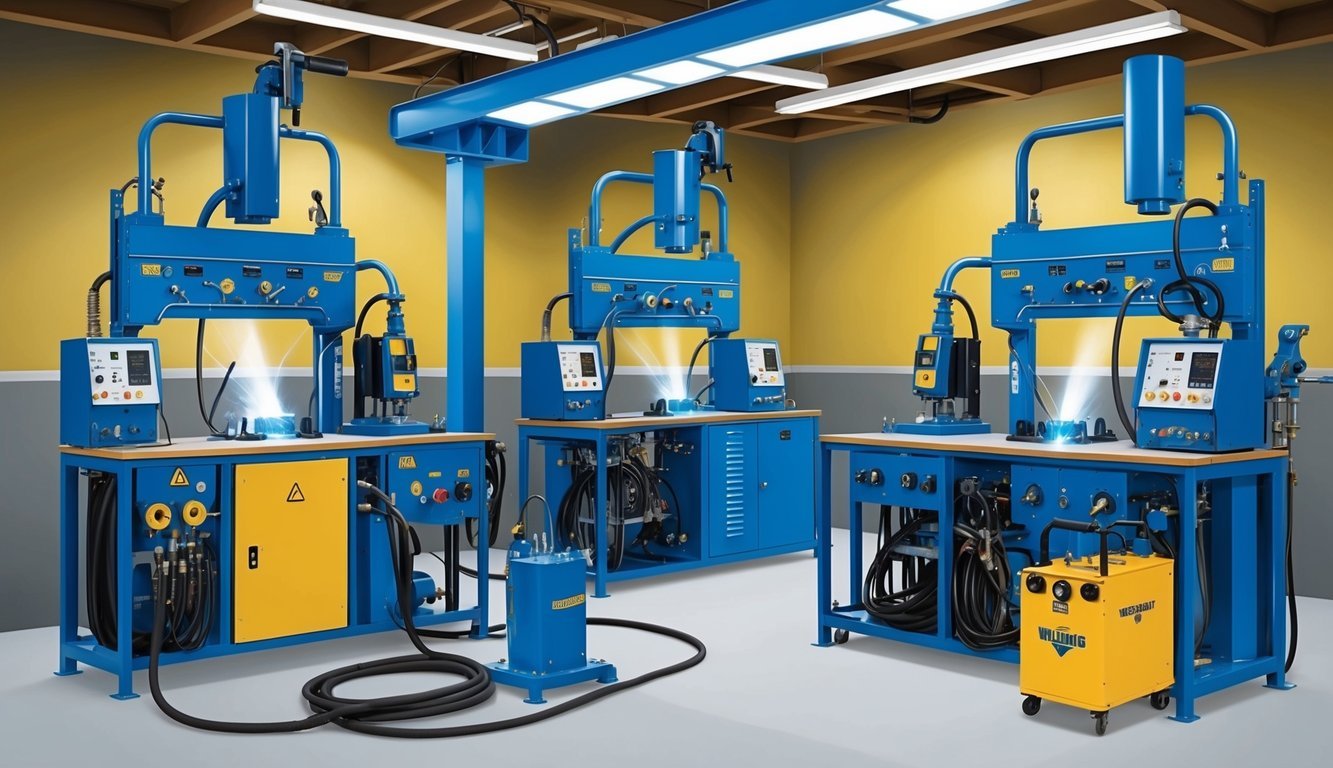
Comprehensive welding certification programs provide significant advantages for your career.
They’re designed to help you hone your skills and land better jobs.
Enhanced Skill Development
In these programs, you’ll learn a lot more than just the basics.
You’ll gain hands-on practice with various welding methods, including stick, MIG, and TIG welding.
Additionally, you’ll pick up knowledge about safety, blueprint reading, and quality control, which makes you a more rounded welder.
The best part? You’ll get the chance to practice in real-world settings, helping you feel ready for the job site.
Some programs even teach underwater welding—how cool is that?
Increased Employment Opportunities
With a solid certification under your belt, more job options will open up for you.
Many employers specifically seek welders with robust training and credentials.
You could find opportunities in construction, shipbuilding, or even the aerospace sector.
The skills you develop can lead to high-paying jobs.
Some welders even venture out to start their own businesses.
Your certification gives clients confidence that you know your stuff.
Plus, you can work almost anywhere.
Welders are in demand globally—from bustling cities to quiet rural areas, your skills will be sought after.
What to Expect in a Certification Program
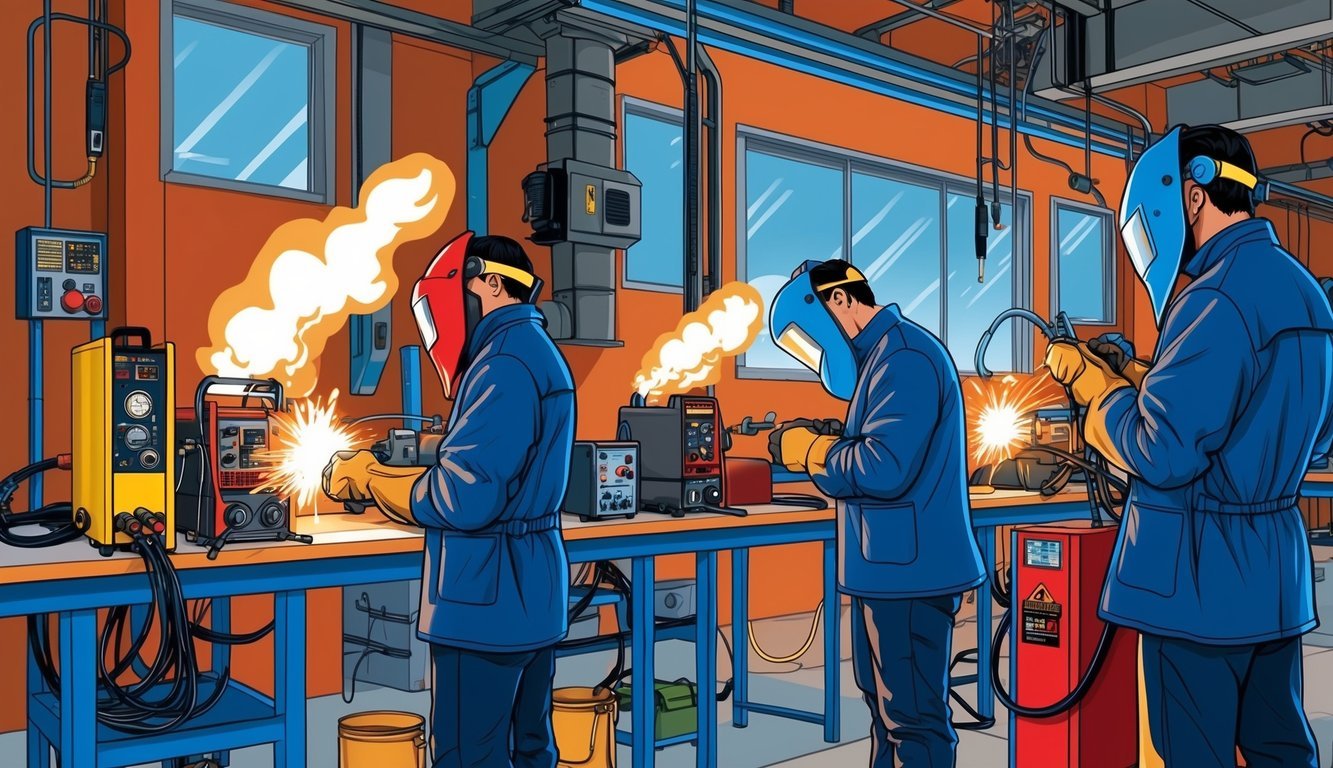
Welding certification programs combine hands-on training with essential safety lessons.
You’ll learn practical skills while also mastering key safety protocols to become a skilled welder.
Practical Training Components
In a certification program, you can expect to spend a good chunk of time in the welding shop, practicing various welding methods like MIG, TIG, and stick welding.
These skills are crucial for passing your exams.
You’ll also work on real projects, which prepares you for actual jobs.
Your instructors will guide you on reading blueprints and selecting the right tools.
Plus, you’ll gain insights into different metals and their behavior during welding—knowledge that’ll come in handy on the job.
Safety Protocols and Standards
Safety is a top priority in welding, and your program won’t skimp on that.
You’ll get trained on safety gear and protocols, learning why each piece of equipment is essential.
Setting up a safe work environment will be a key part of your training.
This includes identifying fire hazards and ensuring proper airflow.
You’ll also cover industry safety standards, including OSHA guidelines.
Understanding these can safeguard you and your coworkers on the job.
Frequently Asked Questions
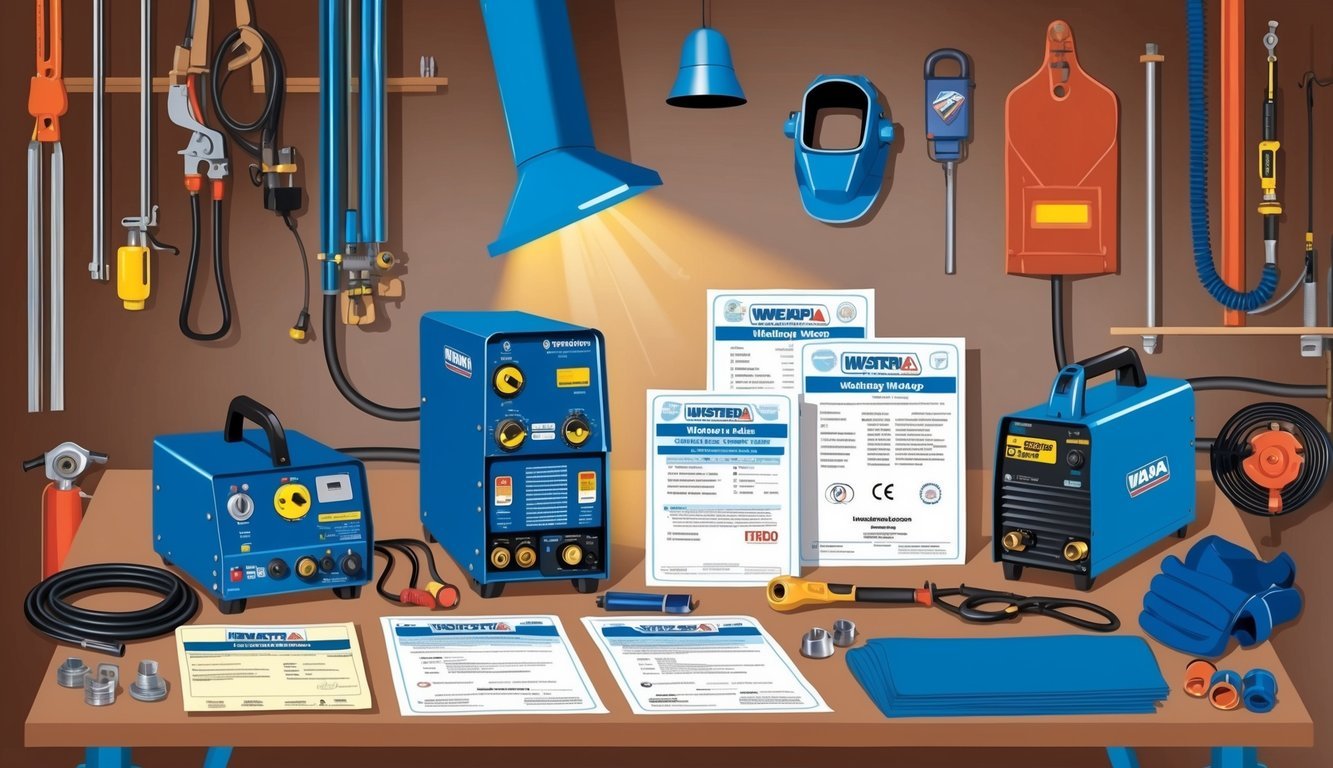
Welding certifications can truly elevate your career and earning potential.
With a range of programs and schools available, each one offers unique perks.
What’s the best welding certification for boosting my career?
The AWS Certified Welder program is highly regarded in the industry.
It covers multiple welding processes and can unlock a lot of job opportunities.
This certification signals to employers that you’ve got the skills needed for various welding tasks, making it a smart choice for career growth.
Which welding certs could land me the highest salary?
Specialized certifications like underwater welding or aerospace welding often lead to higher-paying positions.
The IIW International Welding Engineer certification can significantly boost your earning potential, too—as it requires advanced skills that are in demand in lucrative industries.
Got any recommendations for top-notch welding schools in the US?
The Hobart Institute of Welding Technology is known for comprehensive programs, offering both short-term and long-term courses.
Another fantastic choice is the Lincoln Electric Welding School, which features hands-on training with cutting-edge equipment.
What’s the hardest welding cert to get?
The AWS Certified Welding Inspector (CWI) certification is often considered one of the toughest to achieve.
It requires a deep understanding of welding processes, codes, and standards.
To earn this certification, you’ll need to pass a rigorous exam that tests both practical skills and theoretical knowledge.
Many welders see this cert as a major milestone in their careers.
Are there good online welding courses I can take?
Absolutely! The AWS offers self-paced online courses covering a variety of welding topics, with over 40 options available.
These courses let you learn at your own pace, perfect for brushing up on existing skills or picking up new techniques right from your home.
What should I look for in a welding program at a four-year college?
Search for programs that blend hands-on training with classroom learning.
A program that has partnerships with local industries for internships or job placements is a big plus.
Make sure they cover a variety of welding processes and ideally offer certification options as part of their curriculum.

